- Fotogalerie:
- Foto:
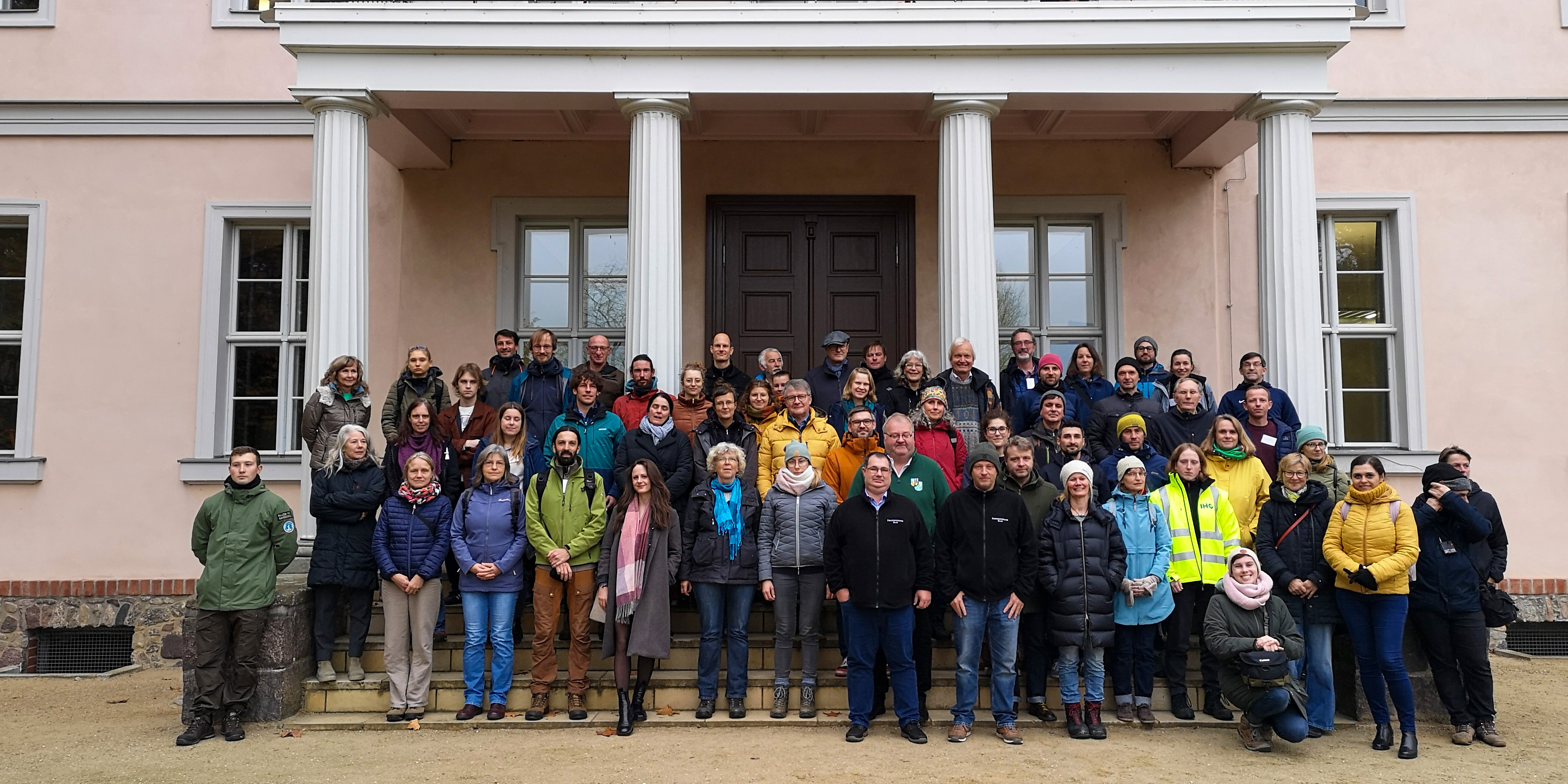 , Text k fotce:
Group photo of participants in front of Schloss Criewen
, Text k fotce:
Group photo of participants in front of Schloss Criewen - Foto:
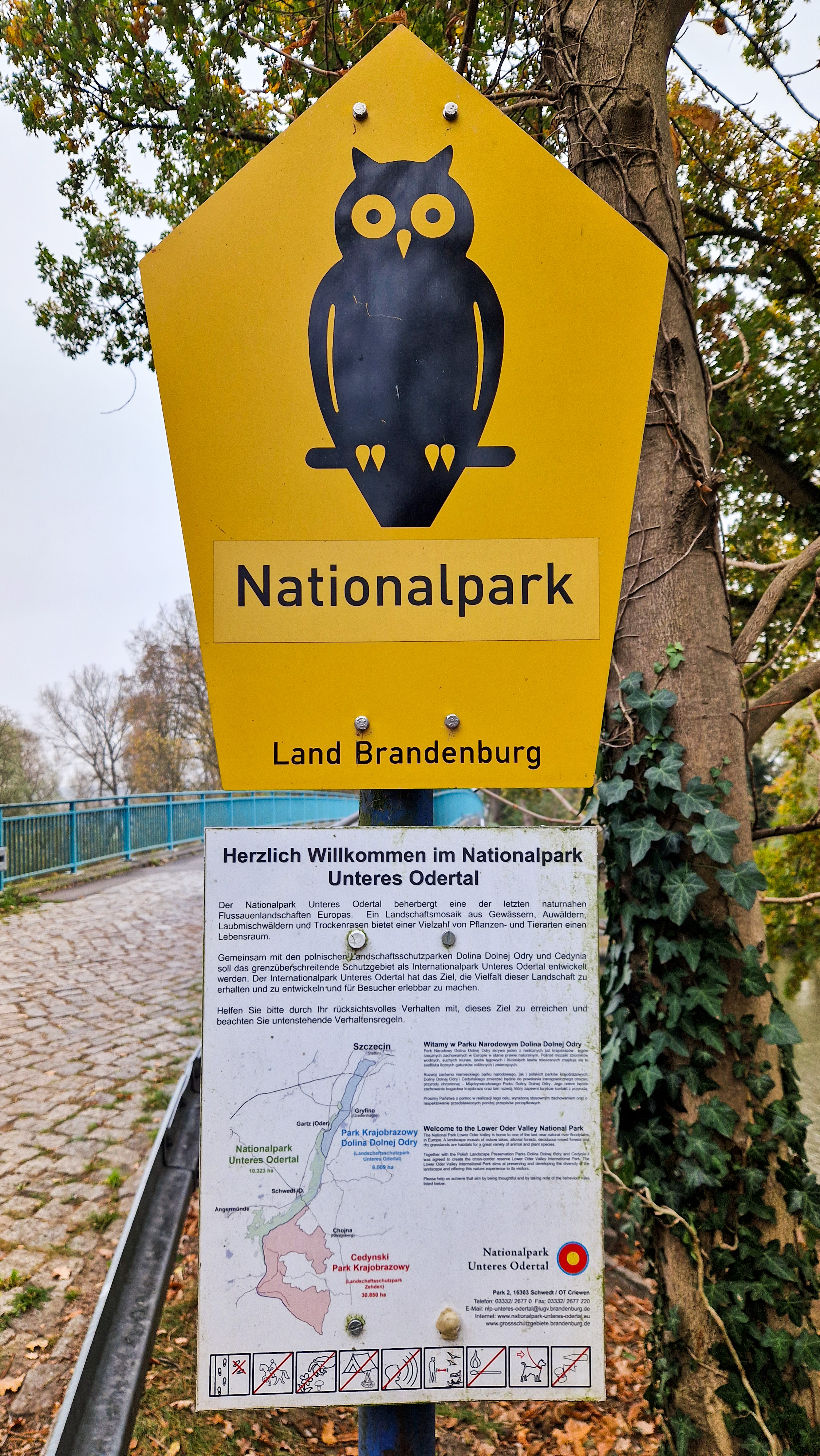 , Text k fotce:
National Park Unteres Odertal logo
, Text k fotce:
National Park Unteres Odertal logo - Foto:
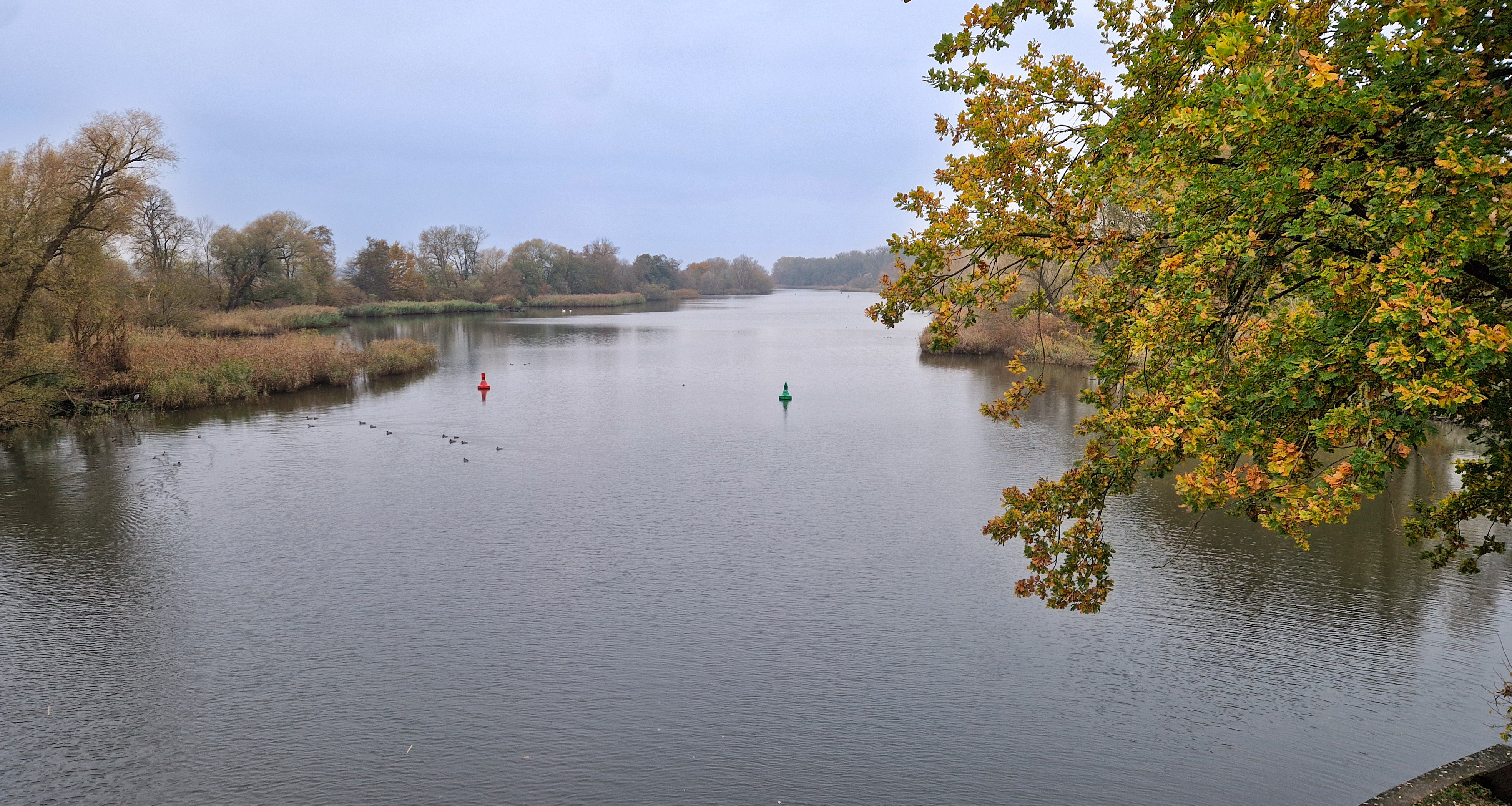 , Text k fotce:
View on Oder River near Criewen
, Text k fotce:
View on Oder River near Criewen
On November 7–8, an international conference entitled Function and Threats of Mussels, Snails, and Crayfish in the River Ecosystem took place in northern Germany, in the town of Criewen, on the borders of the Unteres Odertal National Park. The conference was organised by the Brandenburg Academy Schloss Criewen, the Institute of Inland Fisheries e.V. Potsdam-Sacrow, and the Stuttgart Museum of Natural History.
Martin Bláha attended, representing the faculty with an invited lecture entitled: Native and non-native crayfish species in the Czech Republic: Case studies of the (un)successful management of two invasive species populations. He was one of four presenters focusing on crayfish, as most contributions were focused on highly endangered large mussels, including the freshwater pearl mussel (Margaritifera margaritifera)and the thick-shelled river mussel (Unio crassus). Colleagues from universities and research institutes in Germany, Poland, and the Czech Republic, as well as representatives from state agencies, shared their experiences in monitoring, reintroducing, and maintaining populations of these large mussels. The conference also served as a reminder of the massive ecological disaster in 2022, when the overgrowth of the algae Prymnesium parvumand its toxins led to the drastic die-off of fish, large mussels, and other organisms in the lower Oder River.
The conference atmosphere was very friendly, with exciting topics and opportunities for collaboration with similarly research-oriented institutions discussed during coffee breaks and free time.
- Fotogalerie:
- Foto:
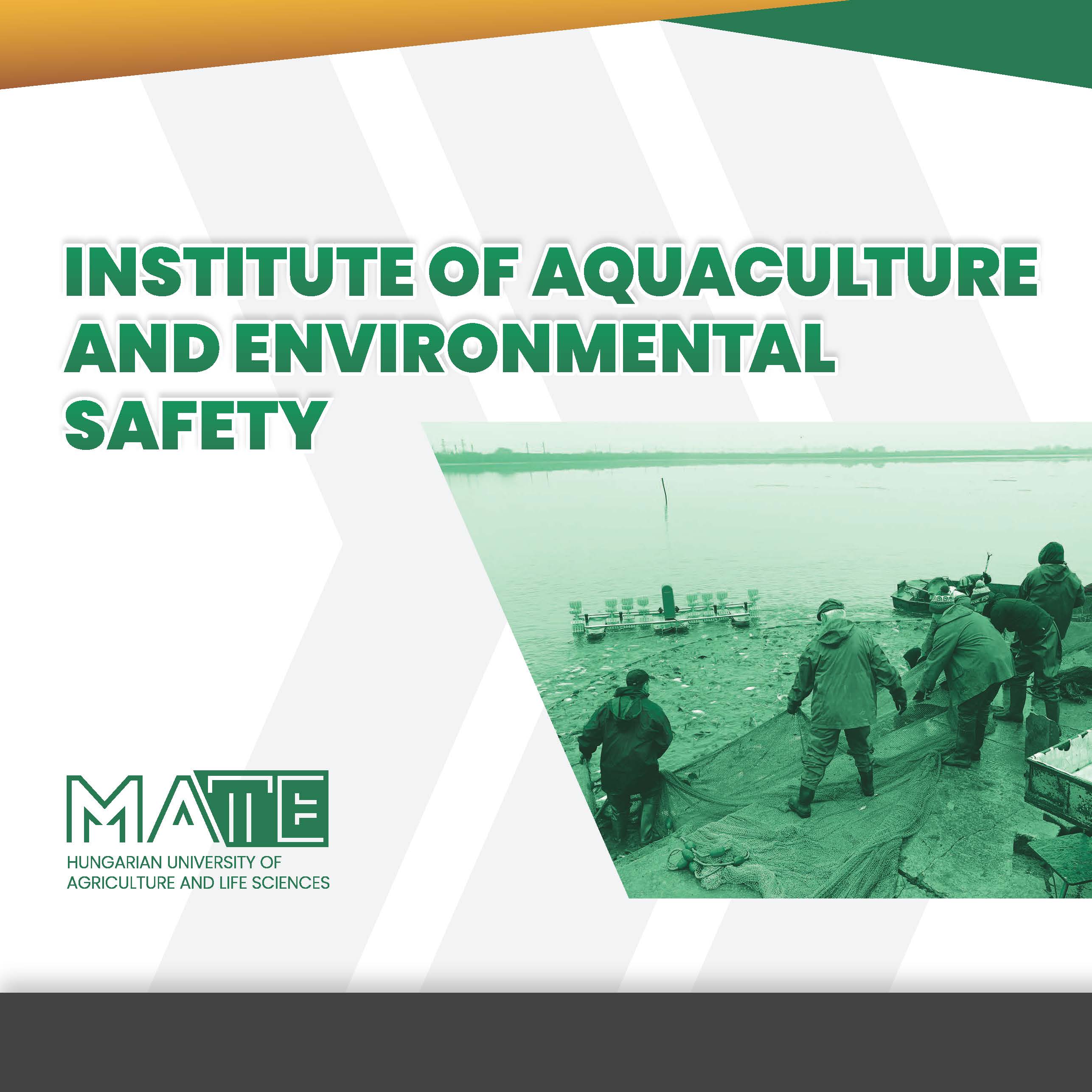
- Foto:
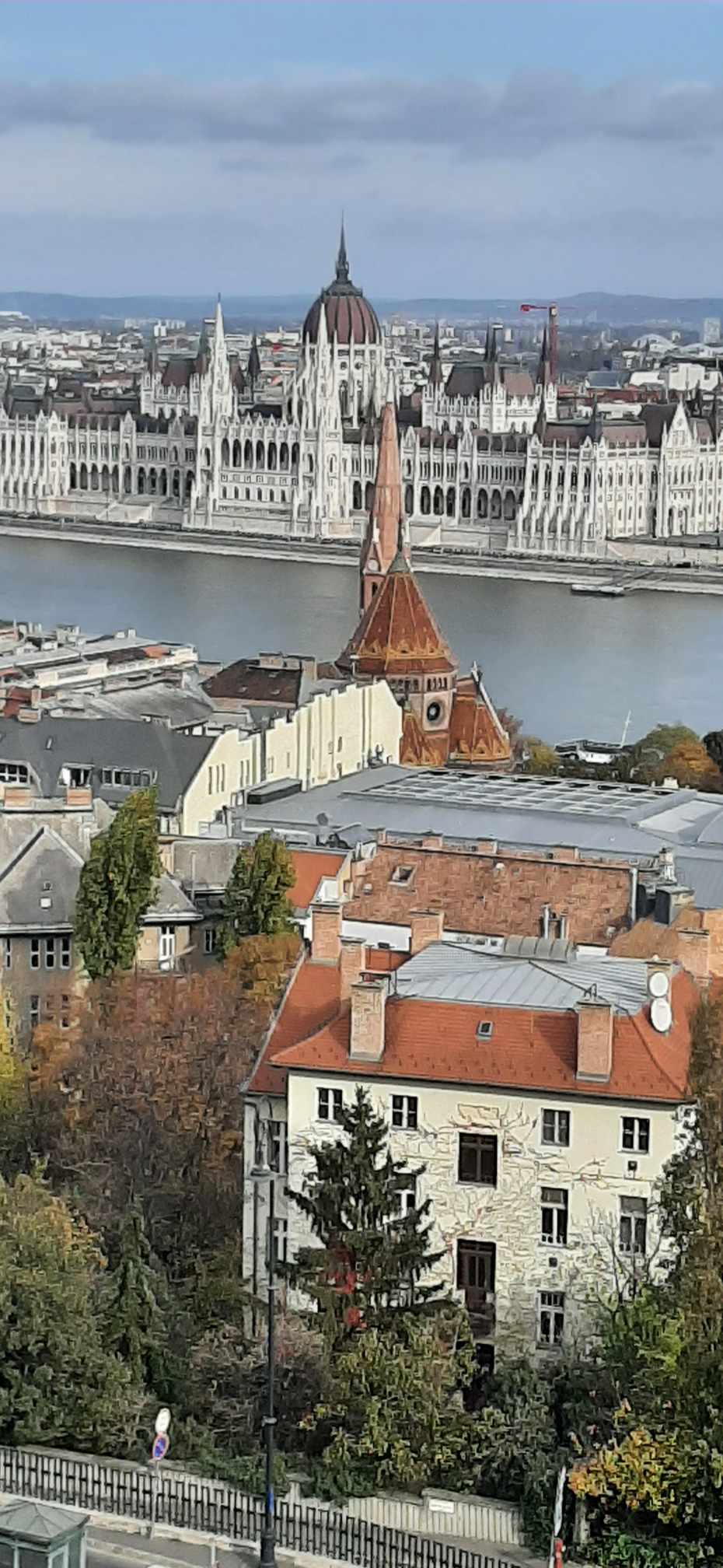
- Foto:
The three-month internship (from 01/09/2024 to 30/11/2024) was conducted at the Hungarian University of Agriculture and Life Science, Gödöllő, Hungary, Department of Aquaculture, under the supervision of Professor Akos Horvath. The primary aim of the internship was to gain deeper knowledge about cryo-preservation (freezing) and short-term sperm preservation of carp sperm and the histological analysis of carp gonads along with other tissues.
During my stay, I acquired a solid understanding of the basics of carp sperm kinetics, the process of freezing carp sperm, and the histology of carp gonads and other tissues. My skills in scientific communication and the exploration of research questions were significantly enhanced. Furthermore, I established new connections and collaborations with other scientists in this field.
From June 3 to 6, together with the Dean of the Faculty, I attended a meeting of the European Percid Fish Culture Association (EPFC). At the workshop, I delivered a lecture on the topic „Percid Fish Nutrition and Environmental Impacts of New Feeds“. In addition to my presentation, five other lectures were given. The workshop was part of the national conference XLIX. Halászati Tudományos Tanácskozás. The program also included excursions to Hungarian percid fish farms and a visit to the local research institute (HAKI-MATE).
Written by: V. Stejskal
In the period 30.9. - 6.10. 2024 visited Ing. Vojtěch Kašpar, Ph.D., and Ing. Pavel Švejda to the sturgeon farm of The Northern Sturgeon Company Limited (Hið Norðlenzka Styrjufjelag ehf.), Iceland, with the aim of developing cooperation. At the local farm, the maturity of oocytes of more than 400 siberian, russian and white sturgeon was checked by ultrasound and subsequent biopsy. Egg samples were taken from individuals with oocytes at stage IV maturity and the polarization of the nuclei was subsequently evaluated at the Faculty of Fisheries and Protection of Waters USB.
From December 7 to December 14, 2024 Ing. Vojtěch Kašpar, Ph.D., Ing. Martin Hubálek, Ph.D., a FFPW USB student Daniel Dvořák and Ing. Pavel Švejda visited a sturgeon farm of The Northern Sturgeon Company Limited (Hið Norðlenzka Styrjufjelag ehf.), Iceland. The aim of the trip was final preparation of breeders and its stripping in russian sturgeon (A. gueldenstaedtii), siberian sturgeon (A. baerii) and white sturgeon (A. transmontanus) for the production of caviar from ovulated eggs. A total of 120 kg of caviar was produced and the trip was therefore considered as successful by the Icelandic company. In addition, approximately 100 sturgeon individuals were biopsied and the collected egg samples were subsequently evaluated at the Faculty of Fisheries and Protection of Waters USB.
On 31st January 2025, Paride Balzani was in Napoli (Italy) for receiving the academic prize for young researchers „Umberto Pierantoni“ 2024, on the topic „Biodiversity, conservation, natural ecosystems restoration, and microbiome”, awarded by the Academy of Physical and Mathematical Sciences of the National Society of Sciences, Letters and Arts in Naples.
From 1st September to 5th September 2024, Abhipsha Dey visited the 31st Conference of European Comparative Endocrinologists in Ancona, Italy. The international conference was held on behalf of the Society of European Comparative Endocrinologists. Abhipsha Dey had an oral presentation about “Effect of methyl methanesulfonate on the developmental role of AP endonuclease (APEX1) in sterlet (Acipenser ruthenus) embryos”.
- Fotogalerie:
- Foto:
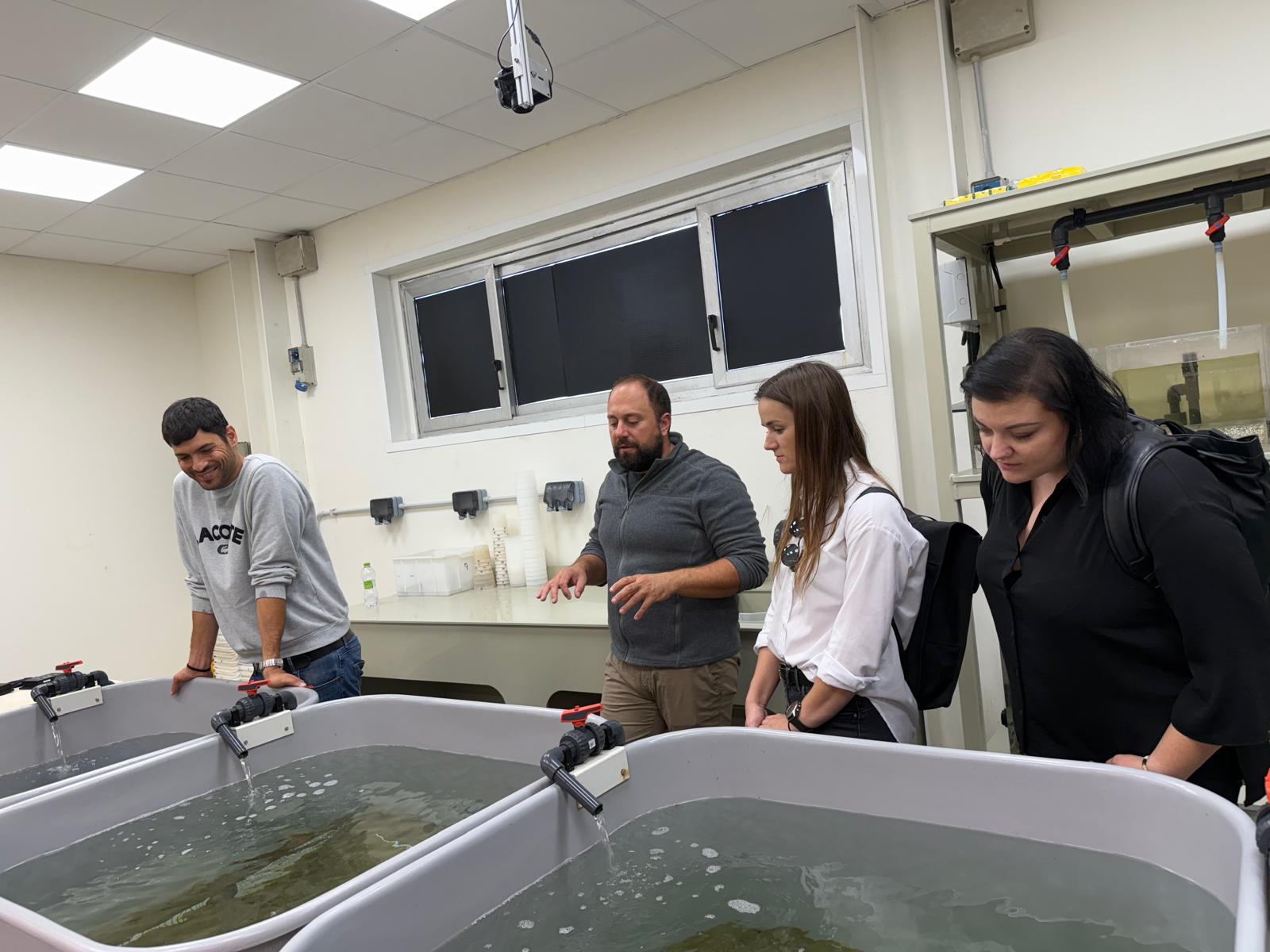
- Foto:
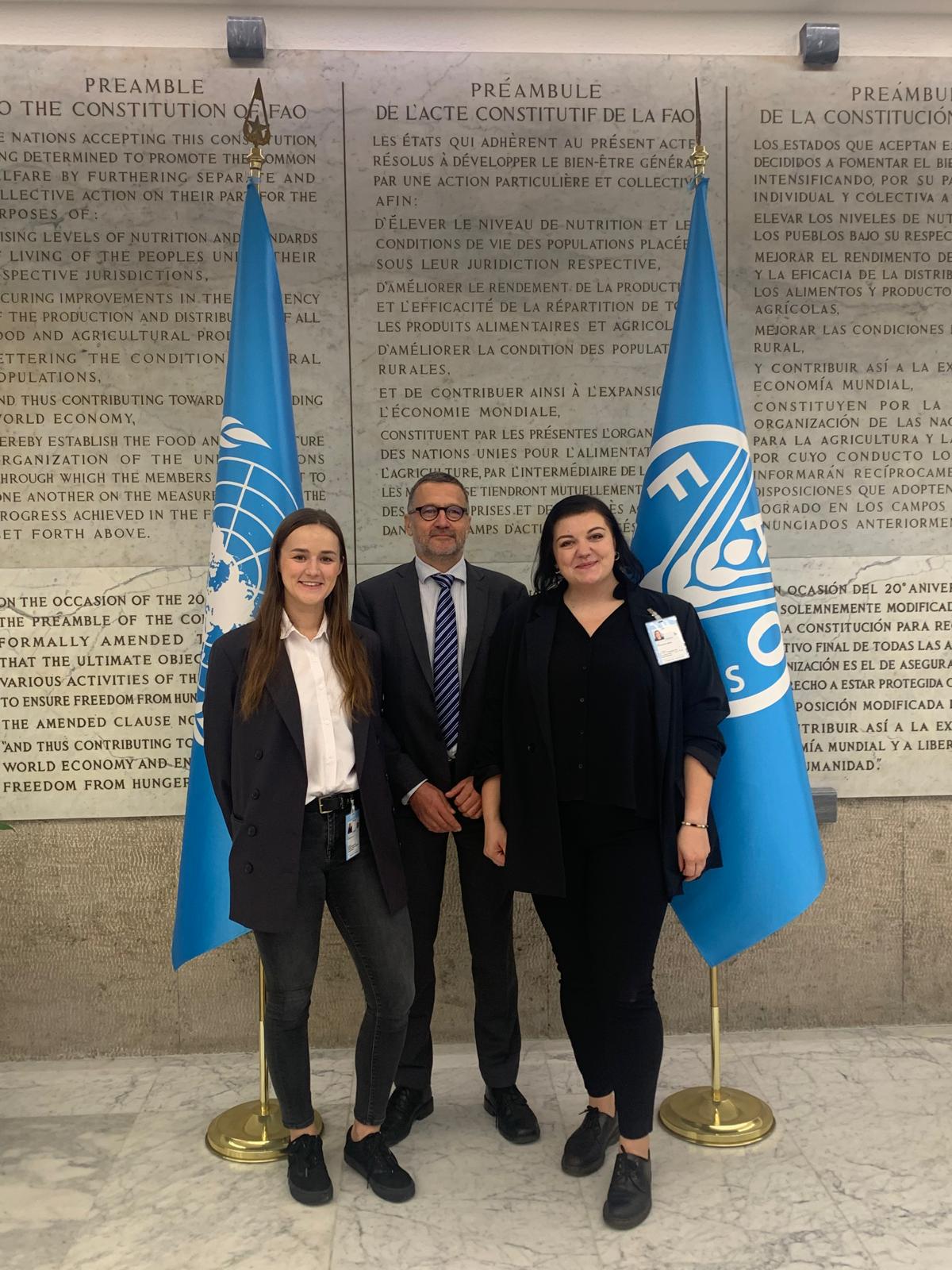
From October 13th to 19th, 2024, we attended the World Food Forum (WFF) organized by the Food and Agriculture Organization (FAO) in Rome. The main focus of the event was on empowering young people in decision-making, innovation, and driving change in the agriculture sector.
During the forum, we visited several discussions on key topics such as water management, agriculture, innovations in food systems, and the need for sustainable development. These talks centred on how we can improve efficiency in agriculture and support sustainable practices both locally and globally.
One of the major themes was the role of young people in decision-making processes. Participants discussed how young professionals can contribute to innovation and the implementation of effective solutions in agriculture and aquaculture. Attending WFF provided us with valuable insights into global trends and challenges related to the development of agri-food systems and the involvement of youth in decision-making, research, and science.
In addition, we met with colleagues from the European Aquaculture Society (EAS), where we exchanged updates about recent developments in the field, including the establishment of a new movement/association, NOWA (Network of Women in Aquaculture). We also had the opportunity to meet Roman Diatka, the Czech Republic's permanent representative at FAO.
On the last day of our trip, we visited the University of Rome Tor Vergata. We had the chance to tour the Experimental Ecology and Aquaculture Laboratory (LESA) and meet with experts from the Department of Biology. During our visit, we discussed issues related to freshwater ecosystems and their protection, as well as marine systems. We also learned about their research in IMTA (Integrated Multi-Trophic Aquaculture) and made valuable connections for future collaboration.
On October 1 - 4, 2024, Dr. Jan Urban represented our faculty at the meeting of the Aquaexcel 3.0 project in Turin, Italy. During the meeting, the results and outputs of the project for the past year were discussed. Among the partners, interest in the activity of the signal and image processing laboratory is growing considerably, several possible collaborations using the TNA program have been proposed.
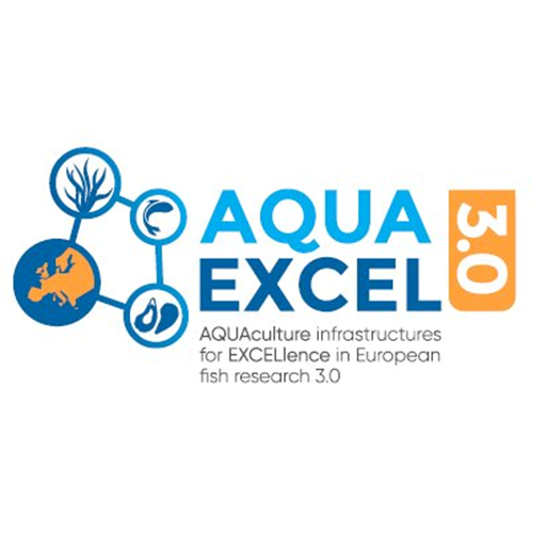
Martin Pšenička and Roman Franěk attended the summer school "Hokkaido Summer Institute 2024, Course title: Advanced Aquaculture Genetics and Genomics II: Fish Biotechnology" at the invitation of Prof. Fujimoto. During the visit, we presented the results of our own work, participated in discussions, and contributed to the preparation of the final outputs of the summer school. Additionally, we established new connections with scientists working in the field of reproductive biology and acquired valuable materials for our own research.
- Fotogalerie:
- Foto:
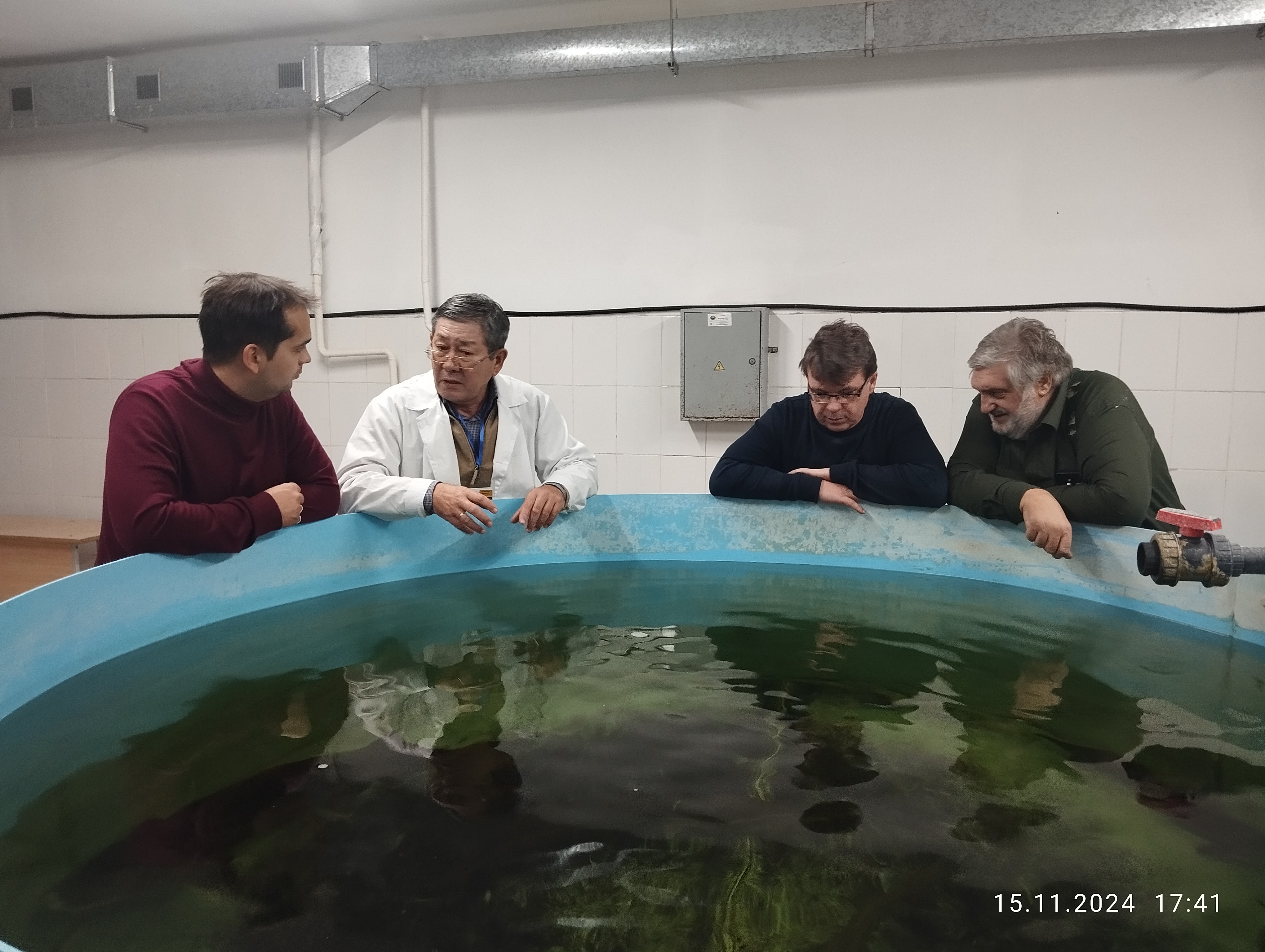
- Foto:
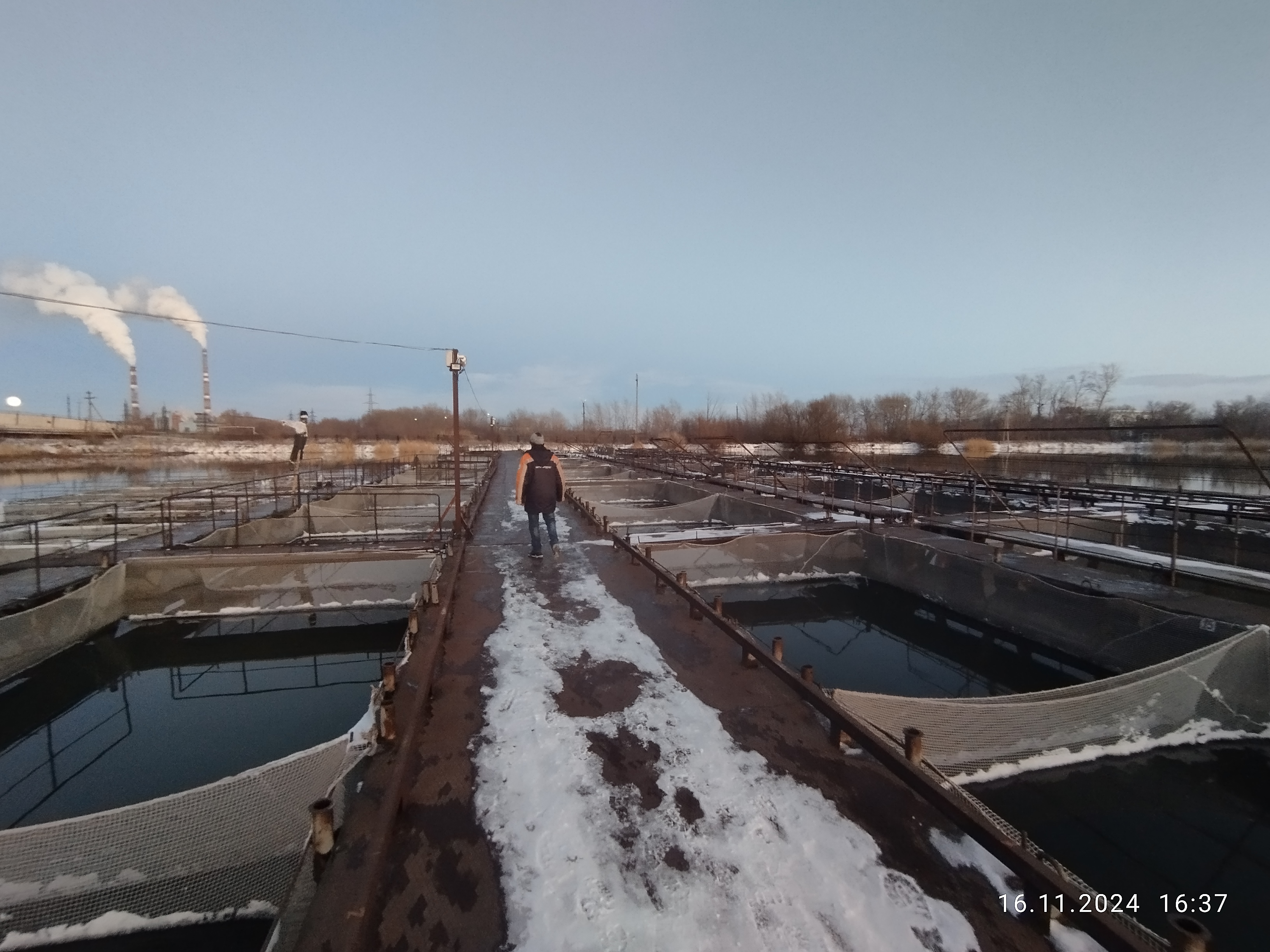
Between November 14thto 20th, I, together with my colleagues Tomáš Policar, Jan Kouřil, and Oleksandr Malinovskyi, conducted a business trip to Astana, the capital of Kazakhstan.
The purpose of the trip was to participate in a professional and educational meeting at S. Seifullin Kazakh Agro Technical University and the emerging Kazakh-Czech Aquaculture Research Center. During this visit, we prepared plans for international cooperation for 2025 and 2026 at the university leadership level, including discussions with Rector Prof. Kanat Tireuov and the center’s leadership, represented by its director and our colleague, MSc. Zhaxygalim B. Kuanchaleyev. The main focus of discussions and professional work revolved around the development of scientific (preparation and implementation of projects and experiments related to the intensive farming of pikeperch, reproduction, and controlled rearing of Siberian taimen) and pedagogical collaboration (exchange programs and internships for Master's and Ph.D. students).
During our stay, staff from FROV JU delivered special lectures to Master's students in the field of Fisheries. Additionally, the Czech delegation from the FFPW USB visited aquaculture facilities for pikeperch and sturgeon farming in Astana and Karaganda. We also met with the Czech ambassador, Ing. Pavel Šepeľák. This meeting facilitated discussions to clarify the most suitable procedure for granting study visas to Kazakh students interested in studying at our faculty. I believe that our visit to the center, the lectures for university students, and our renewed meetings with its representatives, as well as with fish producers in Kazakhstan, will contribute to the accelerated development of intensive collaboration between the two institutions. Furthermore, I hope this visit will enable our faculty to offer both its students and Kazakh students exciting international study opportunities, thereby expanding their global professional experience.
Dr. Koushik Roy, Assistant Professor and Deputy Head of the Laboratory of Nutrition at the University of South Bohemia in České Budějovice, Faculty of Fisheries and Protection of Waters, successfully completed a six-month sabbatical as a Visiting Scientist at the Aquaculture and Fisheries Institute, Wageningen University & Research (WUR), Netherlands. The sabbatical was funded through the Visiting Scientist Fellowship Scheme of the Wageningen Institute of Animal Sciences (WIAS), secured by Dr. Roy. This sabbatical, running from July to December 2024, was supported by the FFPW USB as part of its career advancement initiative. A summary of his activities in sabbatical is listed in the table below.
|
S. No.
|
Type
|
Particulars
|
Role of AFI/ WIAS
|
Destination
|
Status
|
|
1.
|
Article
|
Scoping review connecting freshwater ponds and multitrophic aquaculture to EU circular bioeconomy and food systems
|
Co-author
|
Reviews in Aquaculture (Wiley)
|
Accepted
|
|
2.
|
Article
|
Opinion connecting Nutrition and Ecology, with a novel concept “Rings of Power” to control nutrient cycles in global food webs
|
Acknowledgement
|
Nature Water
|
Under review
|
|
3.
|
International conference
|
Invited lecture in a special session; presented a biomolecules view of pond food web and balanced pond feeding concept for pond aquaculture
|
Secondary affiliation
|
AQUA2024, Copenhagen Denmark
|
Presented (Oral presentation)
|
|
4.
|
Project
|
Submitted a VENI pre-proposal
|
Co-author
|
NWO ENW panel
|
Rejected
|
|
5.
|
Project
|
OPAL stage-2 proposal and associated data, analytics (with ANU chair group)
|
Partner
|
H2020
|
Under review
|
|
6.
|
Pedagogical activity
|
Revision of WorldFish project manuscript (commissioned by dr. Marc C.J. Verdegem)
|
Inviter
|
Aquaculture (Elsevier)
|
Done
|
|
7.
|
Pedagogical activity
|
Consultation to Ph.D. students of dr. Marc C.J. Verdegem working on ponds and nutritious pond diet in Biofloc
|
Inviter
|
Ph.D. thesis
|
Done
|
|
8.
|
Pedagogical activity
|
Ph.D. proposal review (invited by dr. Johan Schrama)
|
Inviter
|
Ph.D. thesis
|
Done
|
|
9.
|
Pedagogical activity
|
Lecture:Nutritional Requirement of Ponds
|
Secondary affiliation
|
AFI internal staff and students
|
Done
|
|
10.
|
Pedagogical activity
|
Lecture:Nutritional Ecology of European Fishponds
|
Secondary affiliation
|
WUR Masters’ students
|
Done
|
|
11.
|
Experiment
|
Pond experiments in Czechia – season 2023 data and season 2024 experiment with key personnel (Verdegem, Wiegertjes, Gerrits, Veldkamp,Schrama)
|
Consultant
|
Future articles
|
In process
|
|
12.
|
Training
|
Orientation to food system definition, terminologies, and methodologies by providing lectures to study – various staff (van Riel, Wiegertjes). Faecal characteristics methods in fish (Satya Prakash).
|
Teacher
|
Knowledge
|
Done
|
|
13.
|
Collaboration
|
A future MSCA project of candidate’s wife Dr. Deepali Rahi Roy with NIOO-KNAW (Dr. Melissah Rowe) will involve personnel from WUR-AFI (Wiegertjes, Kokou, Menno – CARUS)
|
Collaborator
|
Future project implementation (2026-2027)
|
Scheduled
|
|
14.
|
Special issue
|
Special issue proposal “Pond fish and food web nutrition” (Roy, Verdegem, Gatlin III, Jan-Lock)
|
Co-author
|
Aquaculture Nutrition (Wiley)
|
Accepted
|
Five FFPW employees joined the annual fish nutrition workshop by Wageningen University and Research, Aquaculture and Fisheries Institute. Ing. Lenka Kajgrova won the Best Poster Award. They attended with support from ERASMUS+ or lab funding. The workshop highlighted pond research by Marc Verdegem, featuring a session led by Dr. Koushik Roy on pond fish nutrition, sharing insights from GACR 22-18597S project. Dr. Arjen Roem (Skretting) showed interest in adopting balanced pond feeding. Prof. J.A.J. Verreth praised the advancements for pond supplementary feeding's efficiency and ecological sustainability. The workshop provided theoretical and practical insights from global specialists and R&D scientists in fish feed industry. Study materials supplemented learning. Organizers thanked USB FFPW for financial support.
Workshop photos are available at: [https://photos.app.goo.gl/DdjFjNh9aSR1sE8n6].
Seminar and Doctoral Dissertation Defense at Norwegian University of Life Sciences (NMBU)
The first day was dedicated to discussions on potential future collaboration between institutions, a tour of the NMBU facilities, and an overview of the experimental infrastructure, including specialized facilities for pathogen challenge testing. The program also included a seminar with an additional opponent within the research group of Margareth Overland. On the second day, Linn Haug Eide defended her doctoral dissertation. The defense began with an introductory lecture on Environmental Impact of Aquaculture: Challenges and Opportunities for Sustainable Practices and Innovations, followed by the main dissertation defense on Alternative Protein Sources for Farmed Atlantic Salmon Tested under Commercial-Scale Field Conditions. After the presentation, the candidate engaged in a discussion with the opponents, and the committee delivered its final decision, which was positive.
Written by: V. Stejskal
During the period from 27th November to 2nd December 2024 I participated in various feed production activities at the Center for Feed Technology (FôrTek), Norway. These activities encompassed material grinding and mixing, extrusion, drying, and oil coating. Furthermore, I hold a seminar on research focus. This mobility was supported by the PPSŘ mobility program.
- Fotogalerie:
- Foto:

- Foto:

- Foto:

- Foto:

- Foto:

- Foto:

Excursion with Master's students, Czech Republic - Poland - Slovakia 4 to 8 November 2024
From 4th to 8th November 2024, a five-day excursion of 1st year students of the follow-up Master's degree within the subjects "Salmonid fish farming" and "Pond Aquaculture" took place. A total of 15 different facilities, farms, organisations and places in the Czech Republic, Poland and Slovakia were visited. These included various types of facilities, mainly fish hatcheries, flow-through and recirculation farms with rearing of hatchery and/or marketable salmonids, sturgeons, research organisations, cage farms, fish farms, aquaculture facilities, fish processing plants, fish and fish products, etc. The programme also included a fish specialities tasting.
The excursion was realized thanks to the financial support of IAPW and RIFCH resources for teaching. We hereby thank the faculty management for their support!
Prof. Ing. Jan Kouřil, Ph.D., Ing. Ján Regenda, Ph.D. and Ing. Pavel Lepič, Ph.D.
Photo by:Ing. Ján Regenda, Ph.D.
- Fotogalerie:
- Foto:
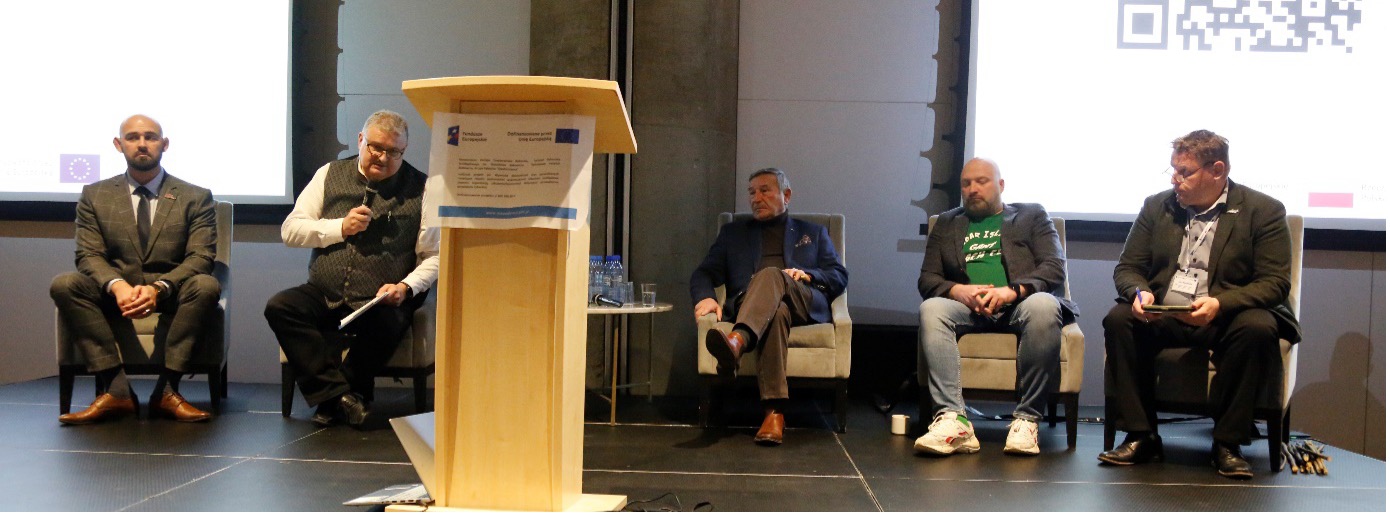
Participation in the 30th Carp Conference in Janów Podlaski, Poland, 26-28 February 2025
From 24th February to 1st March 2025 I attended the 30th Polish Carp Conference, which took place in Janów Podlaski during the last three days of February (26-28 February 2025). The conference was attended by over 240 people. In total, more than 16 presentations were given on various topics that have been vexing Polish fish farmers. The programme also included three discussion panels combined with an interactive online poll for conference participants. The panel topics were: the fish market in Poland, the unification of professional organizations of Polish fishermen, and the cooperation between fishery science and fishery operations.
The conference also included a photo competition with a fishing theme and a gastronomic competition focusing on the preparation of various fish dishes. As a foreign guest, I had the honour to sit on the evaluation panel of the gastronomic competition. I presented three different papers at the conference and participated in the discussion. In the first shorter paper I presented the situation regarding fish production in the Czech Republic and fish export to Poland in the last few years. On the second day, I participated in a panel discussion on the unification of professional organisations with a paper describing the way fishermen are represented in the Czech Republic (Fishermen's Association of the Czech Republic). I ended my contribution with a demonstration of the story of King Svatopluk and his three rods, which captivated the audience. On Friday, I gave my keynote speech on "Cormorant in our neighbours' ponds" describing the great damage caused by cormorants to fish. The final paper evoked great emotion from the audience.
In September 2024, Paride Balzani, Ismael Soto and Filip Ložek attended the 13th International Conference on Biological Invasions (NeoBiota) in Lisbon (Portugal).
During the conference, Ismael Soto co-lead the workshop „Bridging the Lexical divide: unifying terminology for biological invasions“, Paride Balzani presented one poster („Assessing the role of non-native species and artificial water bodies on the trophic and functional niche of mediterranean freshwater fish communities“) and two oral communications („Seasonal variability in the trophic ecology of three co-occurring invasive crayfish at a thermal locality“ and „Potential distribution, observed impacts, and invasion risk of two non-native snapping turtles, Chelydra serpentina and Macrochelys temminckii“), and Filip Ložek presented one oral communication („Overlooked biodiversity losses: the fate of European crayfish ectosymbionts amidst the invasion of signal crayfish“).
In the framework of the Erasmus+ mobility funding programme, I participated in several training activities on Feed Quality and Seafood at the Interdisciplinary Centre for Marine and Environmental Research at the University of Porto, Portugal from 23rd–27th September 2024. My participation included receiving training on experimental facilities for seabass and seabream, as well as involvement in digestibility trials, which encompassed feeding, collection of uneaten feed, and the gathering of fish feces. In addition, I conducted biochemical analyses on seabream serum and performed sample collections of fish blood and brain tissues for further research on fish appetite. Moreover, I delivered a seminar on the use of insects as feed.
The 19th International Conference on Chemistry and the Environment took place in Belgrade, Serbia, from 8 to 12 June 2025. Pavla Fialová participated in the conference with an oral presentation titled Temporal Evolution of Chemical Space Sampled by Passive Samplers in Wastewater Effluent Using Nontargeted Analysis and Chemical Space Modeling. The event also provided a valuable opportunity to exchange the latest insights in environmental chemistry and to establish new professional connections.
 , Text k fotce:
Group photo of participants in front of Schloss Criewen
, Text k fotce:
Group photo of participants in front of Schloss Criewen  , Text k fotce:
National Park Unteres Odertal logo
, Text k fotce:
National Park Unteres Odertal logo  , Text k fotce:
View on Oder River near Criewen
, Text k fotce:
View on Oder River near Criewen 
















